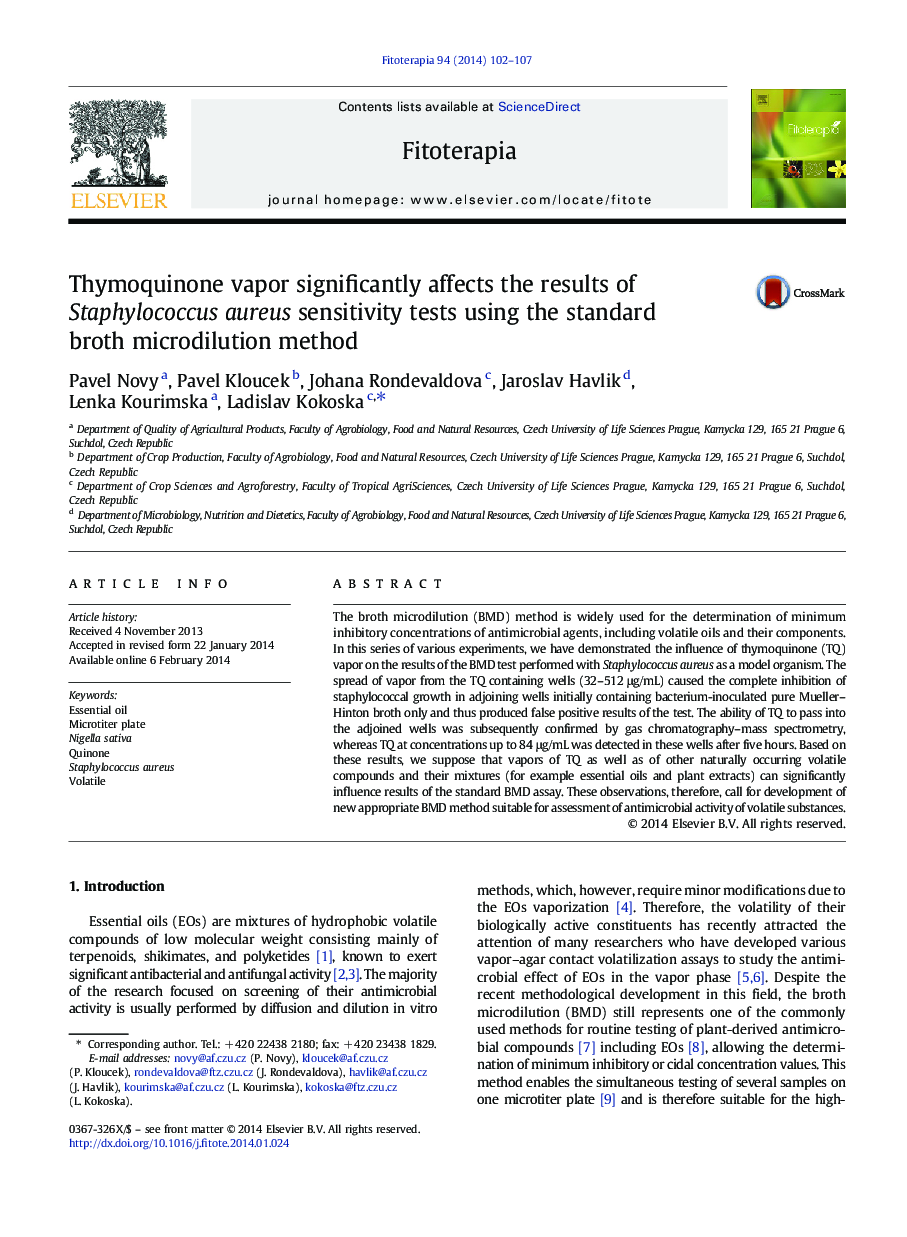| کد مقاله | کد نشریه | سال انتشار | مقاله انگلیسی | نسخه تمام متن |
|---|---|---|---|---|
| 5831044 | 1559651 | 2014 | 6 صفحه PDF | دانلود رایگان |
The broth microdilution (BMD) method is widely used for the determination of minimum inhibitory concentrations of antimicrobial agents, including volatile oils and their components. In this series of various experiments, we have demonstrated the influence of thymoquinone (TQ) vapor on the results of the BMD test performed with Staphylococcus aureus as a model organism. The spread of vapor from the TQ containing wells (32–512 μg/mL) caused the complete inhibition of staphylococcal growth in adjoining wells initially containing bacterium-inoculated pure Mueller–Hinton broth only and thus produced false positive results of the test. The ability of TQ to pass into the adjoined wells was subsequently confirmed by gas chromatography–mass spectrometry, whereas TQ at concentrations up to 84 μg/mL was detected in these wells after five hours. Based on these results, we suppose that vapors of TQ as well as of other naturally occurring volatile compounds and their mixtures (for example essential oils and plant extracts) can significantly influence results of the standard BMD assay. These observations, therefore, call for development of new appropriate BMD method suitable for assessment of antimicrobial activity of volatile substances.
Figure optionsDownload high-quality image (290 K)Download as PowerPoint slide
Journal: Fitoterapia - Volume 94, April 2014, Pages 102–107
